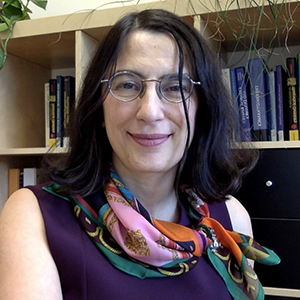About the Seminar
Bacteria, insects and fish that thrive at subfreezing temperatures produce proteins that bind to ice and manage its formation and growth. Ice binding proteins include antifreeze proteins and ice-nucleating proteins. The latter are the most efficient ice nucleators found in Nature. Many questions remain on how do these proteins recognize or nucleate ice, what drives their selectivity and binding to ice, and how does the size and aggregation of the proteins modulate their function. In this presentation, I will discuss our recent work addressing these questions using molecular simulations and theory, with particular focus on elucidating what intermolecular interactions and chemical motifs make these proteins so efficient at their function, to resolve the apparent paradox that the same structures can promote and prevent ice formation, and to draw general principles that can be used for the design of synthetic alternatives for control of ice formation and recrystallization.
About the Speaker
Valeria Molinero is the Jack and Peg Simons Endowed Professor of Theoretical Chemistry and Director of the Henry Eying Center for Theoretical Chemistry at The University of Utah, where she studies the interplay between microscopic structure, dynamics, and phase transformations in materials. The modeling of water, its anomalies and phase transitions, have been a focus of her research in the last years. Molinero’s contributions have been recognized with the Helmholtz Award, Beckman Young Investigator Award, Myriad Award, and Camille and Henry Dreyfus Teacher-Scholar Award.


